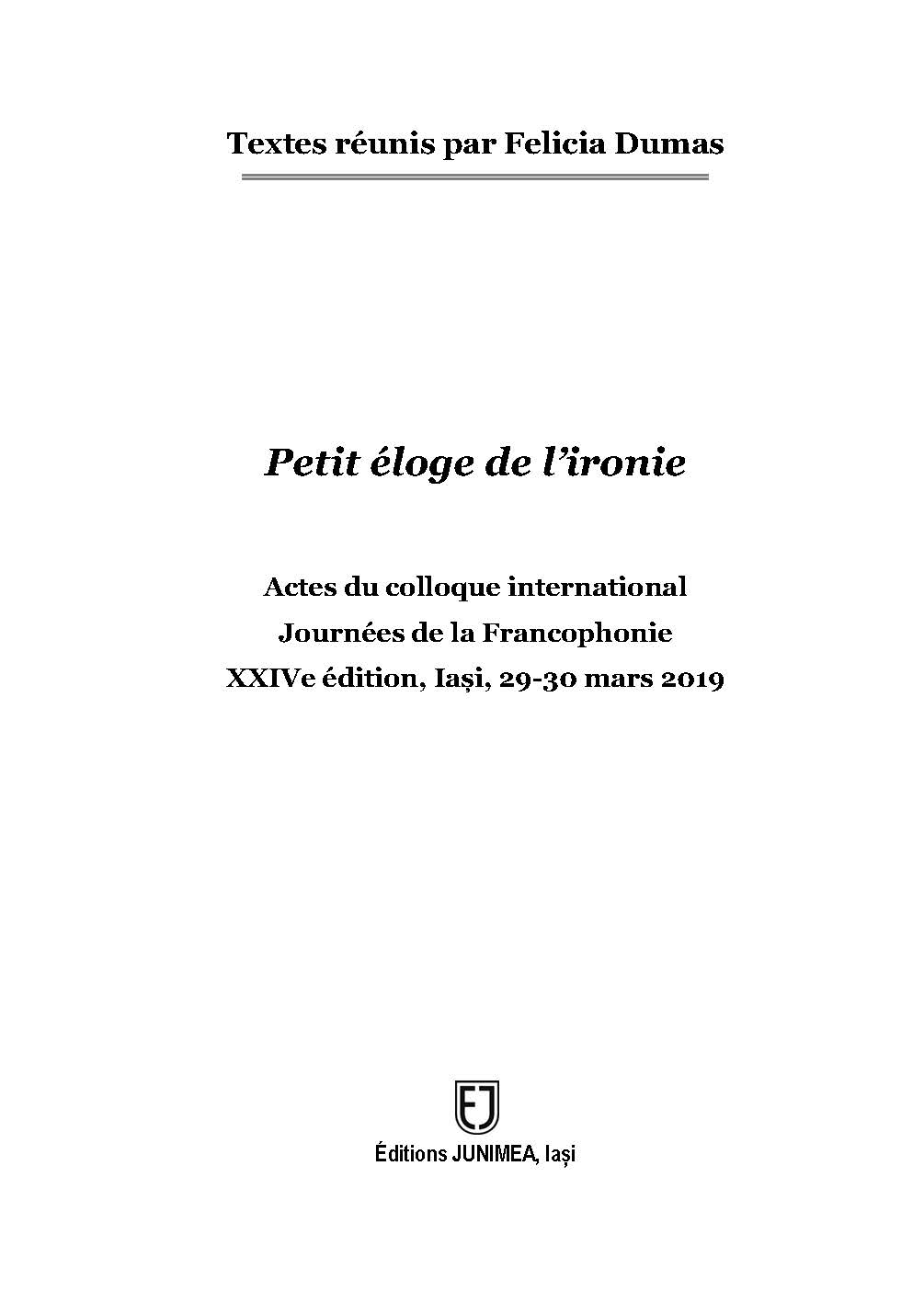Jacques le Fataliste et son aventure littéraire
Jacques le Fataliste and his literary adventure
Author(s): Cristina Poede
Subject(s): Language and Literature Studies, Applied Linguistics, Studies of Literature, French Literature, Romanian Literature, Theory of Literature
Published by: Editura Junimea
Keywords: irony; digression; clichés; metadiscourse; Diderot’s strategies; I.L. Caragiale;
Summary/Abstract: Jacques le Fataliste by Diderot represents an original reply to Laurence Sterne's novel, The Life and Opinions of Tristram Shandy. The author resorts to a multiplicity of points of view, to the narrative solution of the interior stories and of the puzzle, while illustrating his remarks on the abstract game of destiny and free will. Throughout his (anti) novel, Diderot implements new strategies of irony destined to the reader (mechanisms of destabilization and misguidance, narrative leaps, exasperating digressions), to the conventions of the genre (revelation and disqualification of sentimental novel clichés) and to social conventions (criticism of bigotry and fatalism). An ironic pact of reading is thus established; these ingenious procedures of rewriting will seduce the Moderns, from Unamuno to Kundera. In Romanian literature, I.L. Caragiale practiced dialogical writing and the game of narrative virtualities. In the end, the reader has to rethink the literary space and to establish surprising intra-narrative complicities. The legacy of Diderot will include this biting irony of the author who, while attacking literary clichés, cultivates parody, counter-fiction and metadiscourse.
- Page Range: 186-202
- Page Count: 17
- Publication Year: 2019
- Language: French
- Content File-PDF

